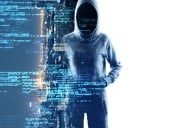You have /5 articles left.
Sign up for a free account or log in.
Some time ago I promised a report on the AMICAL conference I attended in Rome and the conversation with its constituents: librarians, faculty and IT staff from the American Universities abroad, on MOOCs and Liberal Arts Education.
In the course of extended work travel that began with the Privacy Scholars Conference in Berkeley, included the AMICAL conference in Rome, and concluded with the Cornell event in New York City on Privacy and Security, the NSA issue emerged full blown in the U.S. media and on the international scene. The privacy events played bookends to the MOOCs and Liberal Arts. It might have seemed a hodgepodge of issues until I read about Snowden. Not just about what he did, but also who he is. It all came together.
Snowden never went to college. He has had his head in a computer since he was an adolescent, and it would appear has done little to lift it out whether working for the government or a third party vendor, recently to the tune of over $200,000 annual salary as a “system administrator.” That’s darned good money for a high school graduate. Still, I wouldn’t trade places with him for all the tea in Hong Kong. He is no Aaron Schwartz; he is not a martyr. Some of his behavior has aspects of a whistleblower, but not completely. A whistleblower wouldn’t and should not run. Shall we crown him with a civil disobedience laurel? Only if we want to sully that concept in our treasured history from Henry David Thoreau to Martin Luther King, Jr. I wonder if he knows who Henry David Thoreau is? Or the very rich history behind this iconic photograph. Has he ever had to write an essay on the Delphi’s admonition to “know thyself?”
Snowden’s actions demonstrate considerable naiveté. Does he know anything of Chinese history and current Chinese politics? For example, how many millions of people have been sacrificed over time in that society in the name of social order? Does he have any idea how the CPR handles “whistle-blowers” in their own country? Did he think that the Russians, who have an abysmal track record on dissidents and are extremely crafty diplomats, would greet him with open arms?
Is he surprised to be increasingly marginalized, such that succor comes from Assange … and that the help is not exactly going anywhere except deeper into difficulties as, under Assange’s influence, he continues to release more information that tells us what we already know – that countries spy on each other – but that nonetheless has a deleterious effect on the United States in this delicate time of global relationships?
His behavior is closer to Assange than to Schwarz, Thoreau or King. Something tells me he is not made of the same stuff as his interlocker. My take is that Assange has some screws loose, and can therefore tolerate if not even enjoy the consequences of his courage. Snowden strikes me as immature, not unbalanced, although as he digs himself in deeper most certainly he will test strengths and weaknesses. He might write one heck of a freshman essay someday when he is 50. If nothing else, this experience has plunged him into the education he did not have at a younger age.
A liberal education matters. It will not keep individuals from crime, heroism or an uninteresting life. But assuming instructors provide meaningful content and that students engage with it, a liberal arts education should provide at least one essential ingredient: perspective. What one learns, how one feels, what a person enjoys or endures, is not unique in all of time. Human nature is an ineluctable constant but time, place, and context shape the experience. Nature has physical laws, chemical processes and evolutionary trajectories … that cannot and may never be fully explained. Societies, cultures and individuals operate according to certain patterns, but never with full predictability. A sense of wonder crosses one’s mind at the magnitude of what there is to learn and that which will remain forever unknown. That I echo Ecclesiastes and Polonius is not merely pedantic. It registers self-consciousness. Education should cultivate the ability to recognize a trope or identify a mood in one’s own thoughts or behavior. Nature and culture are constantly in tension, including our own. Judgment, a word with many definitions, makes all the difference.
I thought about Mr. Snowden as I delivered the AMICAL talk on MOOCs and liberal education. How would his life have been different if he experienced what the participants and I talked about achieving: deploying technology to teach and learn among and between continents and countries, colleges and disciplines around the world? Subsume the innovative technologies to time-honored concepts. Foster active learning, facilitate information literacy and problem-solving global challenges collaboratively. I have referred to these terms so many times they have almost become hackneyed notwithstanding my ardent belief in their meaning. Juxtaposing this relatively young man and his very uncertain fate against these ideals resuscitated their significance to me. Extraordinarily devoted, intelligent and deeply engaged participants of the conference qualitatively elevated the very possibility of realizing these goals. There are talented, committed people from around the world who, give or take a detail, dream the same dream of a global university education.
On the flight home from Rome, I looked at my 16 year old son, Sam, who had accompanied me on this leg of the trip. What he had experienced and how had his time in Italy influenced his life going forward? And then I thought: Mr. Snowden is headed either for exile or jail. A man of his passions and intelligence should have gone to college.






